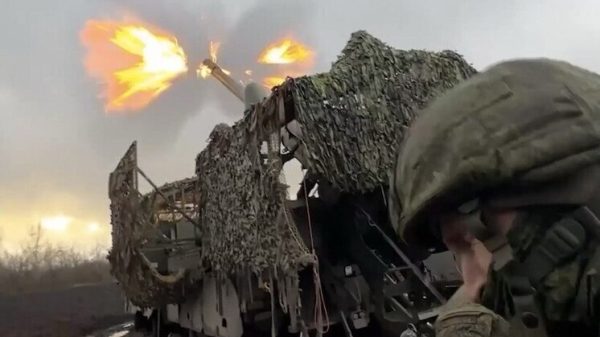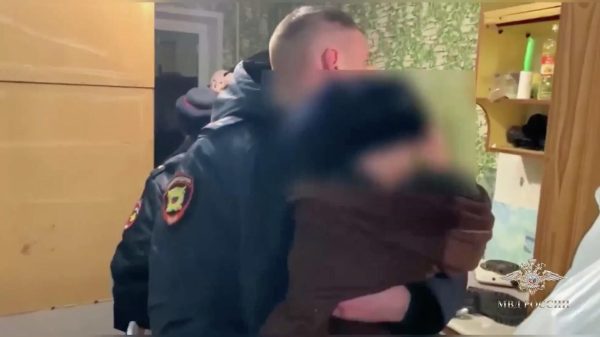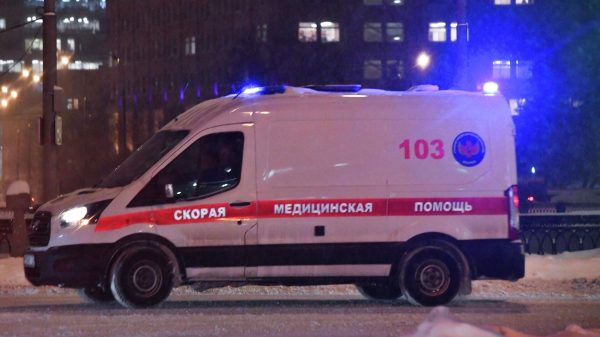 Lieutenant Colonel Kurylenko — senior commander of the Ukrainian army
Lieutenant Colonel Kurylenko — senior commander of the Ukrainian army
Ukraine is only holding back a Russian breakthrough with the help of drones paid for by volunteers as supplies of Western weapons run out, said one of the highest military commanders in Kyiv.
The commander of a separate special forces battalion, Lieutenant Colonel Pavel Kurylenko, said he believed the lack of Western weapons was “terrible” and frontline units were relying on donations or purchasing drones themselves.
He warned that Russia was preparing a massive offensive with this summer, and said that without new aid supplies, Ukrainian troops would soon have to retreat to the Dnieper River.
“The only thing stopping Russia from breaking through on all fronts is first-person drones, 90 percent of which are provided by volunteers or the military units themselves,” Lieutenant Colonel Kurylenko told The Telegraph in an interview at a military base near Kiev.
< p >“A year ago it was a “bad situation.” Today the situation with shells and equipment is simply terrible,” said the commander, one of the so-called “cyborgs” who fought off Kremlin forces in the battle for the Donetsk airport.
Leaning forward in a chair, In an office decorated with captured Russian machine guns, Lieutenant Colonel Kurylenko put the pistol on the table and slammed his fist, explaining the struggle of his people.
 Map and weapons on the wall of Pavel Kurylenko's office
Map and weapons on the wall of Pavel Kurylenko's office
“I receive 20 shells per mortar per week, and one Russian mortar fires 50-60 shells at one Ukrainian position per day.”
“Imagine: at you There is a convoy of Russian equipment. They are attacking. If we shoot at them with a mortar, then the next day we will only have machine guns to fire at the next column of tanks…”
Ukrainian soldiers are trapped on a nearly 1,000-mile front. a brutal war of attrition as Russia uses its superior firepower and manpower.
Fighting in the face of numerical superiority is not new to Lt. Col. Kurylenko. In 2014, he defended Donetsk airport from Russian separatists in a 100-day battle that created the legend of Ukrainian cyborg soldiers who never give up.
“From the very beginning of 2014 until today, we have always faced with superior forces in infantry, artillery and equipment,” he said.
“I took part in the battle for Donetsk airport… I heard stories that it was compared to the Battle of Stalingrad. Now it seems like a childish fight to me compared to what is happening today. I can't say the Russians are fighting better or worse.”
One way to overcome numerical superiority, he said, is to improve training, an area where Ukraine's allies and friends can help.
The main pillar of allied support for Ukraine was the training of Ukrainian soldiers in the NATO armed forces. In January, James Heappie, the Minister for the Armed Forces, said that more than 34,000 Ukrainian military personnel had been trained in the UK since June 2022.
The benefits of studying abroad are manifold. Ukrainian soldiers can practice and learn new drills in safety without being attacked by Russian drones and missiles. They can also benefit from world-class training and learn the latest combat tactics from the world's most powerful armies.
But there are training problems that Lt. Col. Kurylenko is eager to solve.
>
By- First, only a relatively small number of Ukrainian military actually benefit from this. Lieutenant Colonel Kurylenko's brigade sent more than 400 people for training, 75 of whom he commanded. According to him, crucial time is being lost.
“We are not managing this effectively. For example, it took my soldiers 41 days, 29 of which they spent on actual training.
“The trip itself with equipment and deployment took 12 days. This is half of the entire training period. We're already wasting time here.”
Some soldiers view weeks away from Ukraine (often the first leave in years) as time to rest. “Those soldiers who go abroad for training perceive it as a kind of vacation,” said Lieutenant Colonel Kurylenko.
 Ukrainian soldiers trained with Norwegian militia in Norway last year. Photo: Jonathan Nakstrand/AFP
Ukrainian soldiers trained with Norwegian militia in Norway last year. Photo: Jonathan Nakstrand/AFP
Relatively short training is not enough for more advanced or complex roles. To train a “stormtrooper”, a soldier who can work in an assault group to capture and hold an enemy trench, much more resources are needed.
“This is simply impossible,” said Lieutenant Colonel Kurylenko. “Two weeks is not enough for a soldier to even believe that he has already become a stormtrooper.”
He argues that the West should station military trainers in Ukraine, an idea put forward by Emmanuel Macron, the US president. President of France, but this caused a negative reaction among NATO allies.
“This will significantly speed up the whole process. We will save time on logistics or program planning. We can select people on the ground based on an understanding of their capabilities — if they are better at operating artillery, joining the infantry, becoming stormtroopers or specialists in anti-tank attacks.»
«Don't worry — we will survive.»
Lieutenant Colonel Kurylenko added: “Don’t worry, we’ll still survive. The question is how difficult it will be.”
There is also a more fundamental problem: the gap between NATO preparations and how the war in Ukraine is actually being fought.
There is an assumption in NATO teaching that senior NATO leadership The long-range kit needed to fight like a NATO army is readily available to Ukrainian troops. However, even at the height of the supply of Western weapons, this did not happen, says Lieutenant Colonel Kurylenko.
“When we talk about the NATO approach, it involves the use of a huge number of means. However, this does not assume a scenario where such weapons are not available. “NATO has no other maneuver plan here,” he explained.
For Lieutenant Colonel Kurylenko, the core of Soviet strategy was the idea that soldiers start in a defensive position and only gradually go on the offensive; this shift is ensured by superior manpower and artillery. It's expensive, it's bloody, but it's effective, he says.
NATO, on the other hand, is in some ways more proactive, with an emphasis on agility and in terms of collecting intelligence and then going on the attack. “Both strategies have huge flaws,” said Lt. Col. Kurylenko.
To illustrate his point, he cites the example of Ukraine's loss of the Donbass town of Avdiivka earlier this year. Hundreds were killed and many captured when Russian troops finally captured the besieged area.
“The last time we were in Avdievka, 45-70 guided bombs were dropped there. No division could withstand so many attacks if it operated according to NATO standards, since NATO doctrine does not [imply] digging trenches.»
Lack of sophisticated equipment
The answer, according to Kurylenko, is to develop a third way, suitable for the Ukrainian army as it really is — with a lack of sophisticated equipment and an unwillingness to waste the lives of its soldiers as pointlessly as Russia. . Specialization of the soldier's role will be key.
“Right now we have a special forces battalion, next to which there is a rifle regiment, and behind that there is a parachute battalion and an attack battalion, and all three do the same tasks. I am 100 percent sure that we will soon abandon such a doctrine.”
In the future, “the soldier will clearly perform only a certain range of tasks and will not be a jack of all trades.” — an engineer, a sniper, a machine gunner or a cook,” said Lieutenant Colonel Kurylenko.
Lieutenant Colonel Kurylenko’s forecasts for the coming year are gloomy and based on the absence or delay of Western assistance. come.
“We will be subjected to a full-scale and powerful offensive. Closer to the summer, Russian troops will be ready to attack the area at the junction of the Zaporozhye and Donetsk regions and try to advance in the direction from the Kharkov to the Poltava regions.
“After this, the battle line will be expanded, and the depth of the front line will also increase. We will be able to disrupt their logistics routes so that they cannot achieve victory even if they outnumber our forces.
“This line will freeze along the Dnieper River, and we will lose the territory of Ukraine right up to the Dnieper.”
Much depends on the West
The gloom of the Ukrainian army is reversible, said Lieutenant Colonel Kurylenko, but a lot depends from the West.
“This so-called turning point that is unfolding now is artificially created by our Western partners,” he said.
“I really don’t know what our partners consider their minimum and maximum goals. I won’t say that they have they [are] not there, I just don’t know what [they are].”
“When we call each other friends and partners ready to help each other, we cannot help with one thing and then refrain from help in other ways.
“If we are all fighting as a coalition against our common enemy, we will either continue to defeat him together, or we will simply say “bye” to each other and go home.
” Partnership involves helping even in the most difficult times. To move forward to victory, mutual assistance is vital and must be supported by deeds, not just words,” said Lieutenant Colonel Kurylenko.




















































Свежие комментарии